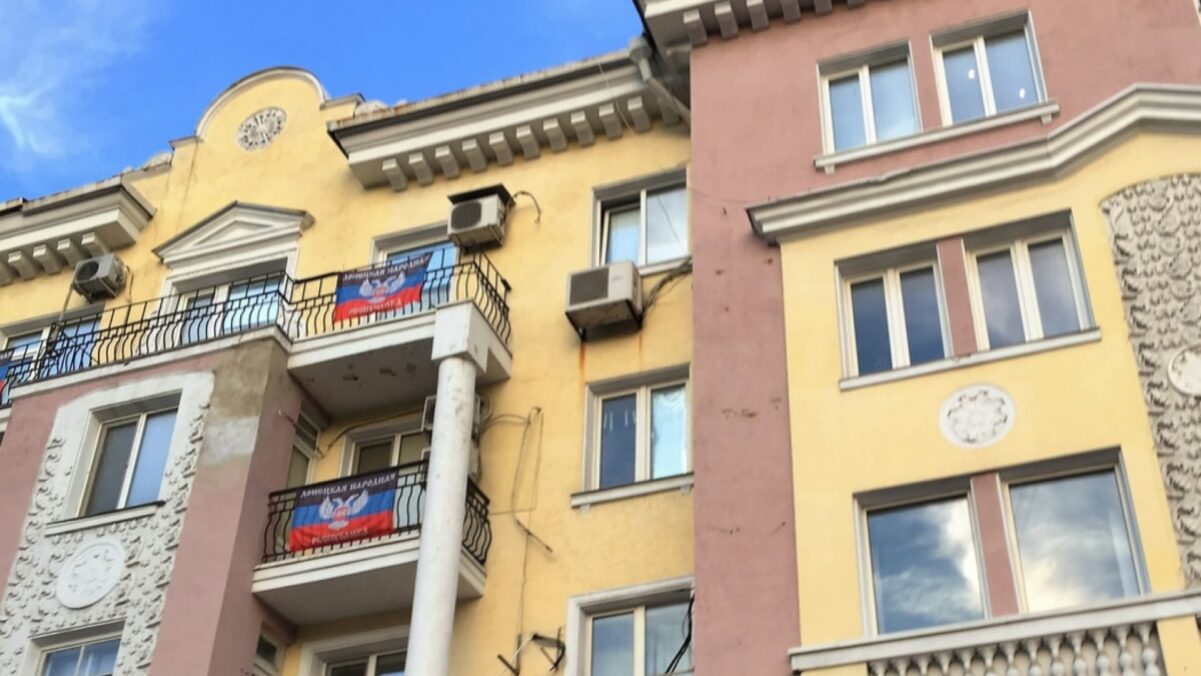
Confiscation of Housing in the Occupied Territories: How Russia Is Changing the Rules and What It Means for Ukrainians
Russia is preparing legislative changes that will officially allow the confiscation of housing declared “vacant” and its transfer to municipal ownership. A bill introduced to the State Duma of the Russian Federation is causing justified concern both among Ukrainians and residents of the occupied territories. Although the document formally applies to the entire territory of Russia, its real objectives and risks are most acute in the context of the seized Ukrainian regions.
A draft law is currently under consideration in the State Duma regarding the recognition of housing as “vacant.” This refers to apartments that show no signs of actual residence: disconnected utilities, no consumption of electricity and water, accumulated debts for communal services, physical neglect (broken windows, uninhabitable condition). Under these circumstances, municipal commissions would gain the right to declare an apartment vacant.
The explanatory notes to the bill state: “If for a year the apartment shows no consumption of basic resources, no payment for communal services, and the apartment itself exhibits signs of neglect, the local commission gains grounds to recognize it as ‘vacant’.”
After such a decision, the property is transferred to the municipality, which can then allocate it to those on housing waiting lists, rent it out, or even sell it at auction.
Who Is Most Affected
The law is aimed primarily at those who were forced to leave their homes because of the war. According to official estimates, over 3 million Ukrainians have left the occupied regions. In practice, all property owners who have not been able to return or establish regular residence in their apartments for a long time are at risk.
It is important to note that the draft law does not directly state that it targets housing owned by Ukrainians in the occupied territories, but in the realities of Russian occupation, it effectively legalizes mass expropriation of housing, which has already been an object for settlement by “new residents” migrants from Russia’s depressed regions, military personnel, and migrants from Central Asia.
How It Will Work
The municipal commission will determine the status of housing based on a combination of criteria: lack of resource consumption, debts, physical condition. After the commission’s decision, the property is entered into the registry of vacant apartments and becomes municipal property.
Some versions of the bill allow for a mechanism of “rehabilitation” and the return of the property if the owner returns and eliminates the violations. However, considering Russian administrative practice, this path is complicated and often blocked by bureaucracy.
Why This Is Especially Dangerous for Ukrainians
In the occupied territories, the problem is exacerbated by Russia’s specific policy regarding Ukrainian passports, property, and registration of residence. Those who have not re-registered their documents under Russian law lose all legal tools for defending their rights. Moreover, Russian laws often do not recognize Ukrainian registers, and any “non-use” of housing is interpreted in favor of the municipalities.
For local authorities, this is an ideal instrument for resettling “their own,” accommodating military personnel or migrants, and solving housing problems at the expense of compulsory “transfer” of apartments that are otherwise impossible to protect.
What Are the Risks and Consequences
- Loss of housing by hundreds of thousands of Ukrainian families who have become refugees or internally displaced persons
- Legalization of looting under the guise of social policy
- Increased pressure on those who remain: they need to obtain Russian documents, or else their property is at risk
- Violation of fundamental property and human rights, as protection mechanisms in Russian courts for Ukrainians who have not acquired Russian citizenship are almost non-existent
Post List
What Property Owners Can Do
In reality, any owner of property in the occupied territories who does not use it and does not pay utility bills for a long time becomes a target for such expropriation. There are currently no official and effective ways to protect property rights in Russian courts. The only possible actions are to file appeals on time, document property rights as much as possible (documents, neighbor testimonies, receipts), but even these measures work only in “classical” legal cases, not under occupation.
Russian legislative initiatives on the confiscation of housing under the pretext of “vacant apartments” are yet another element of the policy of expelling Ukrainians from their own land and resettling the occupied territories with “loyal” citizens or migrants. Mass expropriation of property, disregard for human rights, and the risk of losing everything without the possibility of legal protection this is the reality that everyone who was forced to leave their home must consider today.
Share if this topic has affected you or someone you know. Leave your thoughts in the comments it is important to understand what real problems property owners in the occupied territories are facing.














